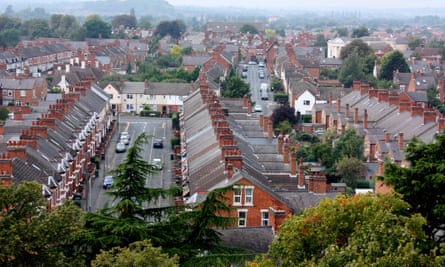New Zealand’s ban on the foreign ownership of land and property has generated headlines around the world – and has clearly touched a nerve in the UK. But should we be doing the same in Britain? There are better ways to fix high house prices that don’t fan the flames of xenophobia.
New Zealand has clearly become the destination of choice for a jet-setting elite. It’s a beautiful country, with high standards of living. It’s also a long way from anywhere – which gives it a particular appeal to billionaire survivalists like Silicon Valley libertarian Peter Thiel, who’s snapped up hundreds of acres of farmland down under as a bolthole in case civilisation collapses. A flood of money from wealthy Chinese investors – not to mention those Brits looking to escape Brexit – has been blamed for fuelling New Zealand’s sky-high house prices.
But the New Zealand government’s ban on overseas nationals buying houses strikes me as a needlessly blunt and illiberal measure. For one thing, it prevents Chinese people from buying property in New Zealand, but still permits buyers from Australia and Singapore. It’s a surprisingly crude policy from Jacinda Ardern’s Labour-led coalition government – one likely influenced by their coalition partners, the New Zealand First party, which has long demanded a crackdown on migration from Asian countries. If you want to build a populism of the left, you need to punch up, not down.
What about the situation in the UK? It’s true that waves of speculative capital from around the world have helped inflate Britain’s housing market, particularly in London. In the 1970s, Mayfair and Knightsbridge were awash with money from the ruling classes of the Gulf states, newly rich after the oil embargo. In the 2000s, it was the turn of the Russian oligarchs, who snapped up mansions in Highgate and Belgravia – some, it’s thought, with money siphoned out of former Soviet state enterprises, laundered via offshore companies based in tax havens. Indeed, 280,000 acres of England and Wales – and an estimated 750,000 acres of Scotland – are owned by offshore and overseas companies.

Professor Chris Hamnett, an expert on housing and gentrification at King’s College London, has studied the impact of sudden cash influxes on property markets, and likens it to a three-bowl fountain. The top bowl – representing a super-prime area like Mayfair – fills up first; but soon it overflows, with repercussions for those lower down the property ladder. “People are being sequentially displaced,” he argues.
But this is a process being driven just as much by homegrown British capital as it is by overseas investors. Much UK land and property registered offshore in fact belongs to British aristocrats with pedigrees stretching back to the Norman conquest, whose plentiful use of offshore companies as vehicles in which to vest their estates – often for reasons of “tax efficiency” – has been well-documented by Private Eye. British overseas territories operating as tax havens, like the Cayman Islands, play a major role in the global offshore system. Higher UK house prices are also being fuelled by second home ownership by Brits, which has jumped 30% since the year 2000. And land prices are inflated further by the actions of shadowy “land promotion” companies, who lobby councils over planning proposals in order to get their land-owning clients the biggest possible profits.
If we want to rein in house prices and property speculation in the UK, there are better, more subtle ways of doing so than simply scapegoating foreign owners. We need full transparency of land and property ownership, to deter the use of the UK property market as a means for laundering dirty money. The recent vote by MPs to force British overseas territories into adopting public registers of company ownership is a good first step; we also need to open up the Land Registry, and end the archaic secrecy that surrounds land ownership in this country.
The government should also mull a ban on offshore ownership of land and property, rather than the blunter definition of “foreign” ownership. This would crack down on tax avoidance and money laundering, regardless of the nationality of the person who’s doing it. It’s something that Scottish land campaigners and MSPs have advocated for some time, though so far they’ve been blocked by the Scottish government.
Finally, the treatment of homes as financial assets should be deterred through the use of taxes on empty homes and on land values. Even Boris Johnson, when mayor of London, decried the way London properties are treated as “blocks of bullion in the sky” by the wealthy, and advocated a 1,000% council tax premium on long-term empty homes – 10 times what the government currently allows councils to levy. Some form of land value tax would also help dampen speculative investment in Britain’s property market – without needlessly discriminating between where such investment comes from.
I lived in New Zealand briefly a decade ago, and was always struck by how welcoming it was, and also by how progressive it was on land rights – with a clear process for returning Māori lands stolen under the treaty of Waitangi. Yet I wonder if it, too, has been infected by the worldwide swing towards Faragist nativism. It’s not freedom of movement we should be worried about – it’s the freedom of capital to do whatsoever it pleases globally. Getting a grip on the way capitalism has distorted the land market is a way of really taking back control.








